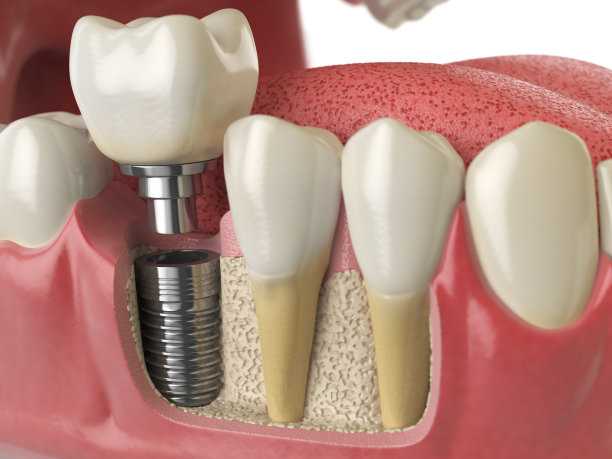Summary: Root canal treatment is a vital dental procedure aimed at treating infected or damaged pulp within a tooth, ultimately saving it from extraction. Successful execution of this treatment hinges on understanding essential guidelines and precautions to minimize complications. In this article, we will delve into four key areas: proper diagnosis and treatment planning, effective sterilization and infection control, adequate anesthesia and patient comfort, and meticulous technique and post-treatment care. Each section will provide valuable insights to enhance the success rate of root canal procedures and ensure a smoother experience for both patients and practitioners. By adhering to these guidelines, dental professionals can significantly reduce the risk of complications, leading to improved outcomes and patient satisfaction.
1. Proper Diagnosis and Treatment Planning

The foundation for a successful root canal treatment lies in accurate diagnosis. Utilizing advanced diagnostic tools such as radiographs and clinical examinations allows practitioners to assess the extent of infection and the condition of the tooth. This step is crucial, as misdiagnosis can lead to inadequate treatment and complications.
Once a proper diagnosis is established, a thorough treatment plan must be prepared. This plan should include details on the number of appointments required, the technique to be used, and any anticipated challenges. Additionally, discussing this plan with the patient ensures they are informed and can provide their consent, enhancing their comfort and cooperation during the procedure.
Incorporating consultation with specialists may also be beneficial. If a case presents complexities, such as anatomical variations or previous treatment failures, seeking advice from an endodontic specialist can optimize outcomes. Collaboration not only improves the chances of success but also enriches the practices overall knowledge and experience.
2. Effective Sterilization and Infection Control
Infection control is paramount in endodontic procedures to prevent post-treatment complications. Proper sterilization of instruments and the dental environment helps eliminate pathogens that could lead to serious infections. This includes using autoclaved tools and single-use products whenever possible.
Moreover, the operators hands should also be thoroughly sanitized before and during treatment to avoid cross-contamination. Wearing appropriate personal protective equipment (PPE) such as gloves, masks, and face shields is essential to maintain a sterile working environment.
Implementing an aseptic technique throughout the procedure cannot be overstated. Using a rubber dam to isolate the tooth not only keeps the area dry but also reduces the risk of saliva contaminating the treatment site. These measures are crucial in ensuring that the root canal treatment remains infection-free and effective.
3. Adequate Anesthesia and Patient Comfort
One of the critical aspects of a successful root canal treatment is managing pain and ensuring patient comfort. Administering adequate local anesthesia prior to the procedure significantly contributes to a positive experience for patients, alleviating concerns associated with pain.
Dental professionals should take the time to explain the anesthesia process to the patients, as this transparency helps alleviate anxiety. Offering sedation techniques, such as nitrous oxide or oral sedatives, can further enhance comfort for nervous patients, making them more receptive during the procedure.
Monitoring the patients vital signs and comfort levels throughout treatment is also necessary. If patients exhibit signs of pain or discomfort, the dentist should address these issues promptly, reassessing the anesthesia or explaining what they are experiencing. This attention to patient care fosters trust and cooperation, ultimately facilitating a smoother procedure.
4. Meticulous Technique and Post-Treatment Care
Executing a meticulous technique during the root canal procedure is vital to success. This involves using appropriate instruments and techniques to clean and shape the root canal system thoroughly. Careful adherence to the working length, avoiding over-instrumentation, and effective irrigation are pivotal in preventing complications.
After completing the treatment, post-operative care instructions should be clearly communicated to the patient. Guidelines on pain management, diet, and activities to avoid can prevent complications and ensure a smooth recovery. Scheduling a follow-up appointment allows the practitioner to assess healing and address any concerns the patient may have.
Documenting the procedure meticulously is also key. Accurate records of the treatment performed, the materials used, and the patients responses will provide useful information for future appointments and potential referrals, further enhancing the continuity of care.
Summary:
In conclusion, ensuring successful root canal treatment involves a multifaceted approach that prioritizes accurate diagnosis, strict sterilization, effective patient comfort measures, and meticulous technique. Each of these aspects contributes significantly to minimizing complications and enhancing treatment outcomes. By incorporating these guidelines into practice, dental professionals can bolster their success rates while ensuring that patients receive the highest standard of care that they deserve.
This article is compiled by Vickong Dental and the content is for reference only.
Vickong Dental
Vickong Dental is a large medical group established in Hong Kong in 2008 by professors from well-known medical universities in Guangdong and Hong Kong, as well as medical doctors from key national '985' universities (including Master's supervisors and senior professors). The chain of branches brings together expert dentists with PhDs and Master's degrees from Hong Kong and Mainland China, committed to providing high-quality dental treatment.
"Vickong Dental Practices the University Motto of 'Healing and Serving Society,' with a Stable Operation for Sixteen Years. It Has Been honored with Hong Kong Enterprise Leaders's Choice,' and is a Global Trusted Implant Center for the Nobel Implant System. Recommended by Hong Kong Metro Broadcast and Guangdong Television, it Serves Customers from Over Thirty Countries and Regions, Gaining the Trust and Favor of Citizens from the Guangdong-Hong Kong-Macau Greater Bay Area and Surrounding Cities.

Thousands of customers' unanimous praise
The most recognized and highly recommended dental service by customers in the Guangdong-Hong Kong-Macau Greater Bay Area
We Ensure You Receive Detailed Care and Attention Here
Hong Kong standards, Shenzhen prices, Your Trusted English-speaking dentists

Vickong Dental Medical-Grade Instrument Disinfection Process
Vickong Dental Medical-Grade Instrument Disinfection Process

Vickong Dental Chain: A Warm and Comfortable Environment for Treatment






Appointment Hours

Q&A
Why choose Vickong Dental?
Vickong Dental practices the university motto 「Medicine to Benefit Society」, with each branch bringing together highly qualified dentists with doctoral and master’s degrees from Hong Kong and the Mainland, and has maintained seventeen years of steady operation。Recipient of 「2024 Hong Kong Enterprise Leaders Brand」, 「2025 Hong Kong Enterprise Leaders Brand」, a Nobel Biocare Global Trusted Implant Center, and a brand recommended by Metro Radio Hong Kong and Guangdong TV。
To date, we have served customers from more than thirty countries and regions,earning exceptionally high word-of-mouth recognition and trusted recommendations from residents across the Guangdong-Hong Kong-Macao Greater Bay Area and surrounding cities
We have eight major branches in Zhuhai、Shenzhen,and a consultation and service assurance center in Hong Kong,so you can book a free consultation at any time for any questions,which is very reassuring.
If I do not accept the quotation after the CT scan, will I be charged??
No! As long as the actual treatment has not started, you will not be charged any fees.
Will there be any additional charges during the treatment process?
No, there won’t be any additional charges. Before treatment begins, we will clearly explain the treatment plan and its corresponding fees. Only after the patient agrees and signs the consent form will we proceed with the dental service.
Can I pay in Hong Kong dollars?
Yes. Vickong Dental accepts payment in Hong Kong dollars. The amount will be converted based on the exchange rate of the day, and the applicable rate will be clearly communicated to you in advance.
Can I reschedule my appointment at any time?
Yes. Please contact us via **WeChat** or **WhatsApp** as early as possible, providing your original appointment time and details, along with your preferred new date and time slot for rescheduling.













